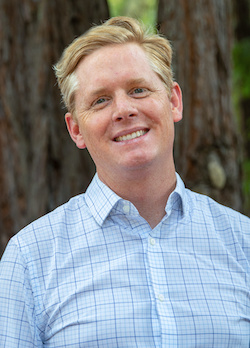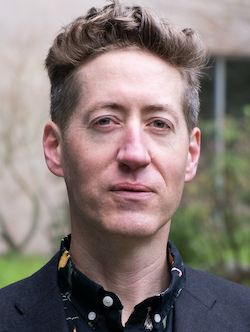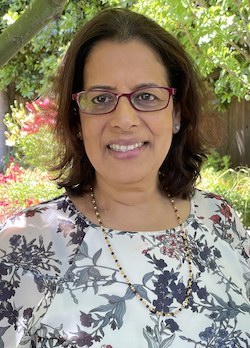Three UC Santa Cruz staff members have been honored for creating an online instruction tutorial last year after the campus shut down and suspended in-person teaching because of the COVID-19 pandemic.
Michael Tassio, director of online education, Aaron Zachmeier, associate director for instructional design and development, and Nandini Bhattacharya, associate director for teaching, Center for Innovations in Teaching and Learning (CITL), are winners of the Online Learning Consortium’s 2021 Accelerate awards for “Excellence in Faculty Development for Online Teaching.”
The program they created in a month’s time—Integrated Course Design for Remote Instruction (ICD-RI)—has been used by more than 300 UCSC instructors to create hundreds of online and remote courses.
UC Santa Cruz had few online courses in March 2020 before the closure. The prospect of creating a robust system of online learning for 900 instructors and more than 18,000 students was daunting.
The campus had already begun a course redesign project for science, technology, engineering, and math (STEM) gateway courses, said Jody Greene, UCSC’s first associate vice provost for teaching and learning, and the founding CITL director. In a letter supporting the award nomination, Greene said that with the campus closed, “we took the skeleton of that course redesign protocol and the extensive knowledge of online instructional design practices from Online Education and, in one month, created … ICD-RI.”
The effort was a collaboration between two small offices—Online Education and CITL. At the time, Online Education had just four staff; CITL had two full-time and three part-time staff members.
In nominating Tassio, Zachmeier, and Bhattacharya for the award, Herbie Lee, UCSC’s vice provost for academic affairs, called ICD-RI “a remarkable achievement by this small group in supporting this many faculty at a large university. By creating a self-paced online tutorial, they created a scalable experience for many more of our faculty than they could have reached through workshops and consultations.
“The tutorial provides faculty and graduate student instructors concepts and tools for designing an effective online course, and was a critical part of our campus response to the emergency switch to online instruction as our state ceased in-person instruction, '' Lee said.
The Online Learning Consortium is a non-profit professional organization of faculty, administration, instructional designers and other learning professionals, as well as educational institutions, professional societies, and corporate enterprises devoted to advancing quality online education. In a statement announcing the awards, OLC’s CEO Jennifer Mathes said the awards program “is an opportunity to showcase leadership and innovation in the field of online, blended, and digital learning. As a result of this self-paced faculty development initiative, online courses at UC Santa Cruz improved in not only accessibility but also other access issues highlighted and made visible by the COVID-19 pandemic.”
The organization is planning a free panel discussion and celebration at the OLC Accelerate Virtual Awards Gala, Sept. 20, at 7:45 p.m. (EDT). More information is available at: https://bit.ly/2021OLCAccelerateAwardsGala. In addition, winners have been invited to hold free public seminars on their work later this year.
Greene said she was surprised at how quickly the online course tutorial developed and how well it was accepted. “If you had told me a year ago that a third of instructors on campus would voluntarily enroll in a deep dive into course redesign in the following few months, I would not have believed you,” she wrote.
At the same time, it was a challenge. “Instructors had to learn ‘new tricks’ specific to the online format, in which few had ever previously taught: they had to think deeply and differently about student engagement, effective communication, and maximizing accessibility, particularly for students in other time zones,” Greene wrote.
“Flexibility is a key tenet of the course,” Greene said, “understanding that many of our students are having enormous challenges getting access to the internet or balancing demands at home with the need to keep learning. Education this year has been consistently disrupted, and designing with disruption as a norm is essential to support equity and access in a pandemic.”
Though there were some detractors, students and faculty generally praised the experience. “My students and I both were able to learn challenging new things, while being supported, and feel a part of a community of learners, thanks to the thoughtful design of the ICD-RI course,” wrote Suzanne Alonzo, professor of ecology and evolutionary biology.
“All in all, the leadership of Bhattacharya, Tassio, and Zachmeier have made a tremendous difference for the students at UC Santa Cruz, increasing their equitable access to high quality courses and opportunities to learn during this period of remote instruction,” commented Samara Foster, CITL managing director.
In August 2021, UC Santa Cruz became a member of the Online Learning Consortium, joining more than 600 other institutions. As a member, faculty and staff can access OLC institutional member resources—webinars, peer networking, early access to research, access to OLC consulting—by creating an account using their @ucsc.edu email address. For questions, contact online@ucsc.edu.





